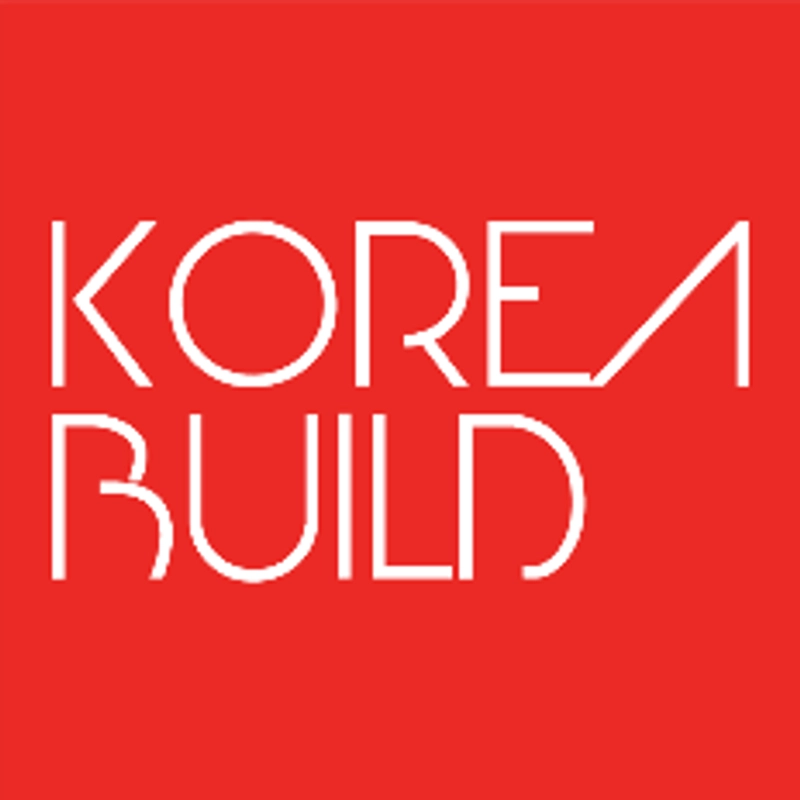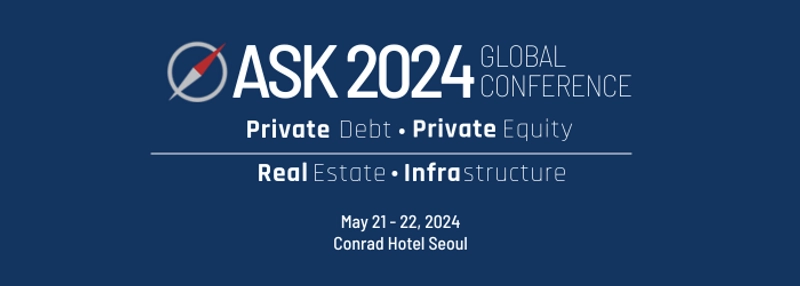Civil Engineering 中的 South Korea 事件


Korea Build Busan
Korea Build Busan: Connecting Ideas and Innovation in the Heart of South Korea’s Construction Industry
Korea Build Busan is more than just a building exhibition—it’s a central meeting point where South Korea’s vibrant construction sector converges with global innovation. Set in the iconic BEXCO convention center in Busan, this four-day event has become a must-attend occasion for anyone involved in construction, architecture, or building technologies. Each year, Korea Build Busan brings together thousands of professionals, from established manufacturers to forward-thinking architects, allowing for dynamic knowledge exchange, deal-making, and the showcasing of new ideas that are set to define the future of building in Asia and beyond.
Situated in one of South Korea’s most progressive cities, the event takes full advantage of Busan’s status as an economic and logistical hub. As the second-largest city in the country, Busan is known for its dynamic real estate development, advanced infrastructure, and growing demand for sustainable and smart construction solutions. It provides the perfect backdrop for this event, where innovation in building materials, systems, and design takes center stage.
An Immersive Platform for the Construction Industry
Korea Build Busan offers a complete ecosystem where professionals across the entire construction spectrum gather to learn, connect, and create. Whether you're seeking to enter the Korean market, meet potential buyers, or explore the latest smart building technologies, the exhibition provides a strategically designed environment that maximizes opportunity.
Participants can expect access to:
A comprehensive exhibition hall featuring local and global suppliers
Dedicated areas for live product demonstrations and technology previews
Industry-specific seminars and technical workshops
B2B matchmaking services curated for meaningful connections
Sustainable construction solutions and green design showcases
These features are designed not only to educate and inspire but also to initiate business. From material innovation to intelligent building systems, the full range of modern construction is represented, helping professionals keep pace with rapid market evolution.
Key Attendees and Industry Sectors Represented
One of the most remarkable strengths of Korea Build Busan lies in the diversity of its audience. The event is attended by a wide variety of industry players, making it an ideal environment for cross-disciplinary dialogue and collaboration.
Attendee profiles typically include:
Architects and architectural technologists
Construction companies and general contractors
Engineers and urban planners
Interior and exterior designers
Developers and real estate investors
Smart building and automation experts
Government regulators and policy advisors
With such a broad range of participants, the event becomes a fertile ground for innovation. Professionals from different corners of the industry gain insight into emerging solutions, regulatory shifts, and new partnerships—creating a ripple effect that influences projects long after the expo ends.
A Glimpse Into the Future: Technologies and Trends
Each edition of Korea Build Busan highlights key themes that reflect the ongoing transformation in the construction industry. These are not just passing trends, but deeply impactful shifts that are reshaping how buildings are designed, constructed, and used.
Among the technologies and topics often featured:
Green and energy-efficient building materials
Smart city integration and IoT for buildings
Prefabrication and modular construction methods
BIM (Building Information Modeling) applications
High-performance insulation and ventilation systems
AI-driven project planning tools
Sustainability-focused architecture and zero-energy design
These themes are explored not only in exhibition booths but also in thoughtfully curated seminars and workshops. This gives visitors the chance to go beyond marketing and gain deeper technical understanding directly from developers and product designers.
Workshops and Seminars: Learning from the Industry's Best
In addition to its robust exhibition, Korea Build Busan offers a rich educational program. Attendees are invited to participate in a variety of learning experiences designed to address today’s most urgent industry challenges.
The educational segment typically includes:
Keynote speeches from leading architects and engineers
Technical workshops on materials and methods
Government briefings on policy and regulation
Panel discussions on sustainability and urban planning
Case study presentations of successful projects
These sessions are not only insightful but also deeply practical. Whether you're looking for ideas to improve project efficiency, reduce environmental impact, or introduce a new product to the Korean market, there’s something valuable in every seminar.
Why Korea Build Busan Stands Out in Asia’s Event Calendar
Amid a growing number of construction-related events across Asia, Korea Build Busan distinguishes itself with its focus on actionable outcomes and its strong connection to both domestic and international networks. It is not merely a showcase—it is a dynamic hub of market intelligence and relationship building.
What sets the event apart:
High-quality curation of exhibitors
Strong public and private sector engagement
Emphasis on smart and green construction
Real business opportunities through structured networking
Cultural access to one of Korea’s most innovative cities
This blend of commerce, culture, and cutting-edge technology creates an atmosphere that attracts both newcomers and returning participants, year after year.
A Gateway to Korea’s Booming Construction Market
South Korea is undergoing a period of significant growth and transformation in its built environment. From urban regeneration projects to massive infrastructure development, the country continues to invest heavily in building the cities of tomorrow. Korea Build Busan offers a gateway for foreign companies to tap into these opportunities and for domestic companies to showcase their expertise to a global audience.
By participating in the event, companies gain access not only to the Korean market but also to regional partnerships across East Asia. The strategic location of Busan—both geographically and economically—makes it an ideal launchpad for regional expansion and innovation exchange.
Building Partnerships, Building the Future
Korea Build Busan is far more than a date on the construction calendar—it is an event that moves the industry forward. It’s where products are launched, deals are signed, ideas are formed, and relationships are strengthened. In a world where the pace of innovation is relentless and the demand for sustainable, smart, and adaptive construction is growing, this event provides the space for professionals to pause, connect, and reimagine what’s possible.
From cutting-edge technology to timeless design, from policy insight to strategic partnerships, Korea Build Busan is the ultimate convergence point for those shaping the future of our built environment—one building, one connection, one idea at a time.


Real Estate & Infrastructure Summit
Real Estate & Infrastructure Summit at Conrad Seoul: A Turning Point for Future Urban Development
A Premier Gathering of Industry Leaders in the Heart of Seoul
The Real Estate & Infrastructure Summit, hosted at the iconic Conrad Seoul in South Korea, has quickly become one of the most influential events in the property and infrastructure investment calendar. Taking place in the financial hub of Yeouido, this summit attracted key stakeholders from across the globe—urban planners, architects, infrastructure developers, real estate investors, and government representatives—eager to explore what the future of cities and investments holds.
Conrad Seoul, nestled within one of the most modern complexes in South Korea, provided not only a luxurious backdrop but also a symbolic environment for high-level conversations about real-world transformation. The event focused on collaboration, innovation, and sustainability, resonating with pressing global challenges such as climate resilience, smart infrastructure, and responsible urban expansion.
Driving Forces: Themes That Shaped the Summit
The summit unfolded over two engaging days filled with keynote presentations, panel discussions, networking events, and interactive sessions. A common thread across all discussions was the need for innovation in both real estate and infrastructure development.
Real Estate Transformation: From Ownership to Experience
The shift from static ownership models to dynamic, experience-driven real estate was a significant focus. Traditional definitions of value in property are being upended by lifestyle demands, flexible workspaces, and hybrid living models.
Key real estate trends discussed included:
The rise of mixed-use developments that combine retail, residential, and office spaces.
Decentralization of business districts due to remote work.
Vertical urbanism, especially in megacities with limited horizontal space.
Technology integration, from AI-based security systems to smart home automation.
These trends are not just shaping investment decisions but are also influencing policy changes and long-term urban planning efforts globally.
Investing in Infrastructure: The New Economic Engine
Infrastructure was highlighted not merely as a support system, but as an investment opportunity with immense returns—financial, social, and environmental. With urban populations surging, modern cities demand resilient, scalable, and tech-integrated infrastructure. As discussed in multiple sessions, infrastructure now plays a dual role: facilitating economic activity and driving innovation.
Key priorities discussed included:
Smart mobility systems that reduce congestion and carbon emissions.
Resilient utility frameworks, particularly in energy and water supply.
Public-private partnerships (PPPs) as a tool for infrastructure financing.
Data-driven city management systems that use real-time information to optimize urban services.
The summit offered compelling case studies of success from cities like Singapore, Tokyo, and Stockholm, showing how infrastructure investments have fueled inclusive growth and quality of life.
Urban Resilience and Sustainability at the Forefront
A defining narrative of the Real Estate & Infrastructure Summit was sustainability. Every speaker, whether from the private or public sector, emphasized the necessity of embedding environmental thinking into every layer of urban and real estate strategy.
Cities of the future must be:
Energy-efficient
Low-carbon
Resource-conscious
Resilient to climate shocks
The summit highlighted Seoul's own journey as a living case study. From its smart waste disposal systems to eco-parks built over former highways, the city is leveraging its technological expertise and strong governance to build a model for the world to follow.
Bridging Investment and Policy: Building Future-Ready Cities
Policy reform emerged as a critical enabler. Governments around the world are beginning to understand the interdependence between well-framed urban policies and attractive investment climates.
At the summit, experts from international financial institutions and ministries shared insights on:
Simplifying regulatory frameworks
Creating incentives for sustainable building
Ensuring fair access to land and property for all socioeconomic classes
One of the most appreciated sessions involved a panel of mayors and city managers sharing their local challenges and innovations. The audience gained valuable perspectives on how policy and private sector energy can work hand in hand.
Interactive Formats and Tangible Outcomes
Unlike traditional conferences, the Real Estate & Infrastructure Summit made intentional efforts to keep the experience participatory. This meant small-group ideation sessions, real-time polls, VR presentations of futuristic urban spaces, and even matchmaking for potential investors and developers.
Highlights from the interactive programs included:
A virtual tour of Seoul’s underground smart city infrastructure.
Real-time design simulation for flood-resilient housing.
One-on-one pitch sessions for green startups to connect with impact investors.
These engagements weren’t just symbolic—they seeded partnerships and pilot projects that will be closely monitored and possibly scaled over the coming years.
Key Takeaways and Future Directions
The Real Estate & Infrastructure Summit at Conrad Seoul proved that when thoughtful design, innovative finance, and proactive governance come together, cities can evolve into equitable, sustainable, and intelligent habitats.
Some of the major conclusions from the summit were:
Cross-sector collaboration is no longer optional—it is essential.
Data and digital infrastructure will define competitive cities.
Urban planning must center on people, not just buildings.
Sustainability is not a trend, but a baseline requirement.
Investment in real estate and infrastructure needs long-term, climate-aware thinking.
With follow-up forums planned for Hong Kong, Dubai, and Toronto in 2026, the summit has laid a strong foundation for continued global dialogue. The community built in Seoul will be crucial in driving urban evolution forward.
The Real Estate & Infrastructure Summit held at Conrad Seoul, South Korea, did more than just convene industry leaders—it planted seeds for a new vision of urban life. In a world grappling with climate change, rapid urbanization, and digital disruption, the event offered clarity, strategy, and above all, hope. As participants returned home, the message was clear: the future of cities will be built today, together.